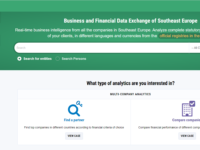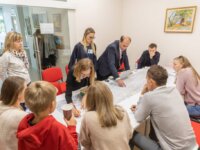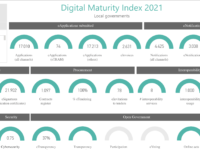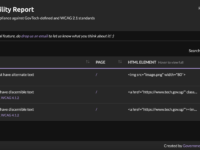Since 2020, the City of Austin (COA) and the University of Texas (UT) have collaborated on over twenty diverse research projects under the legal and administrative framework of a five-year, ten million dollar master interlocal agreement (ILA). Among a very few of its kind in the USA, this ILA is an "innovation enabling innovation" that bridges the barriers between two large, extremely complex organizations and fast-tracks the launch of research and innovation projects by four to five times.
Innovation Tag: Methods and Tools
The Startup GOV.BR Program aims to accelerate strategic digital projects at federal government in an unprecedented and innovative way. By providing technological tools, allocating professionals and assisting them to adopt agile methodologies, it supports a 30-crosscutting-project portfolio with several federal agencies. The initiative has promoted a paradigm shift in the management of public digital solutions, incentivizing agility, resilience and value generation for citizens and general users.
Intergenerational fairness—the idea that we should meet the needs of the present without compromising rights of future generations or citizens—is a defining theme of our time. Although most politicians and citizens value fairness, society does not have a way to assess the impact we’re having on future generations and advocate for them. This Framework for Intergenerational Fairness contributes to this. The Framework provides a pragmatic solution, whether as a young citizen, or public…
Case Study
BIFIDEX – Official Business and Financial Analytics for the single market in the Western…

Countries in the Western Balkans created digital infrastructure to support transparent business operation and prevent fraud in their Common Regional Market. The official registries from 5 countries in the Western Balkans created a digital platform, connecting all official legal and financial data about companies, connected entities, blocked bank accounts and sanctioned persons, bridging different legislations, languages and currencies. The platform won the 2022 OECD/SIGMA/ReSPA award.
LAB Justice is the first executive education program, tailor-made for the Justice sector. With a customized learning journey, it was designed to help people working for Justice bodies address the challenges faced to deliver more efficient and people-centred services. Focused on three main areas – strategic management, digital transition and leadership in a context of change –, it aims to ensure the necessary skills to implement reform measures, namely those under the Recovery and Resilience…
Digital transformation is a long-term journey that involves complex changes. One of the challenges is how we evaluate the progress. We are inspired by the quote, "If you cannot measure it, you cannot improve it". Most of Catalonia's municipalities cannot do a digital assessment. The Digital Maturity Index provides an evaluation turnkey solution for local governments. It is based on open data, and it has a clear focus on public value impact.
Case Study
Dialogue between the city & its people: guide to civic participation in public space projects

By involving the public in the design of public spaces (parks, plazas, streets etc.) municipalities can create spaces that better suit society's interests. According to the data, 58 out of 60 municipalities in Lithuania recognize the benefits of public participation, but 50 % of them say they don't have the knowledge for it. The guide "Dialogue between the city & its people" is a step-by-step textbook for municipalities that helps execute the participation process from start to finish.
Citizens' assemblies (CAs) were incorporated in the new Law on Municipalities in 2005. As an opportunity to strengthen participatory processes, and to improve participatory decision-making methods at local level, Participation Task Forces (PTFs) were established. The innovative nature of the PTFs is that for the first time elected municipal councillors, appointed municipal officials, and representatives of CAs worked together on developing participatory policy proposals for their municipality.
Purple A11y is a customisable, automated web accessibility testing tool that allows software development teams to find and fix accessibility problems, to ensure all users have access to inclusive digital services, especially the elderly and persons with disabilities (PWDs). It is an open-sourced solution to automate periodic tasks and the testing of government digital services.
Case Study
Neighborhood Joint Delivery – Establishing a Regional Environmentally-friendly Integrated…
Neighborhood Joint Delivery was introduced in 2022 to solve delivery issues. Delivery volume in Seoul since 2015 has increased by about 2.8 times, causing traffic, environmental, safety and labor problems. Seoul will create regional bases that integrate services from several couriers to deliver parcels collectively, reducing distance traveled by 50% and improving efficiency by 40%. The eco-friendly bases will collect recyclables, and serve as a base for unmanned autonomous vehicles.




